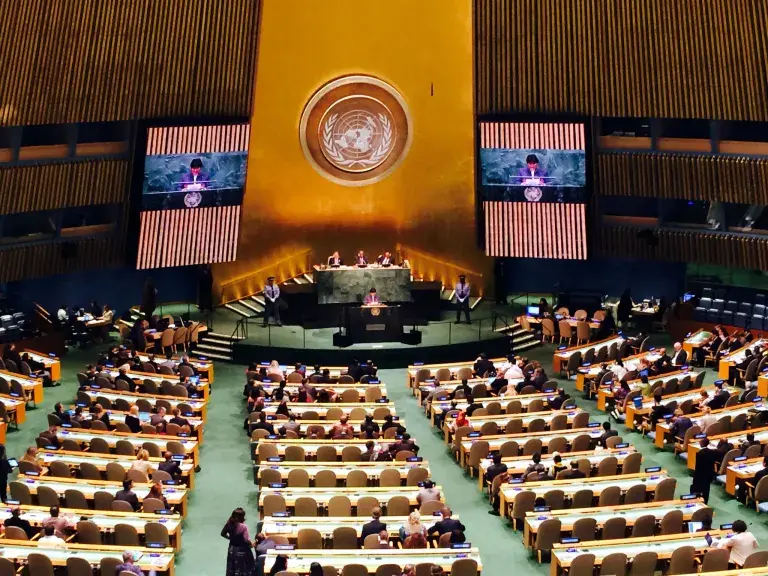
February 19, 2013
Indian and Alaska Native Nations Must Get Involved Now
The General Assembly of the United Nations will host a World Conference on Indigenous Peoples, September 22-23, 2014, in New York, NY. This will be a conference of all the countries of the UN, with the participation of indigenous peoples and non-governmental organizations as well.
The purpose of the World Conference on Indigenous Peoples is to “share perspectives and best practices on the realization of the rights of indigenous peoples” and to pursue the objectives of the UN Declaration on the Rights of Indigenous Peoples.” More importantly, the Conference intends to develop a “concise, action-oriented outcome document” which is intended to “contribute to the realization of the rights of indigenous peoples, pursue the objectives of the United Nations Declaration on the Rights of Indigenous Peoples and promote the achievement of all internationally agreed development goals.”
In other words, the World Conference is intended to result in decisions for action that will be taken by the United Nations to achieve the objectives of the Declaration and to achieve economic development goals. Indigenous peoples, nations, and tribes can have a major influence on the decisions made at the Conference by participating in the preparations, making proposals, and by talking with countries about the actions the United Nations should take to protect and implement the rights of indigenous peoples.
A World Conference is generally convened by United Nations Member States when there is a pressing issue of global importance. Past World Conferences have been organized around the themes of women, the environment, and racism. World Conferences usually result in the adoption of a major statement or declaration containing decisions to take action, action-oriented recommendations, conclusions, and plans for implementation.
Indigenous peoples worldwide are in the midst of preparing for the World Conference. The worldwide Indigenous Peoples Caucus has already organized a Global Coordinating Committee, and the North American Indigenous Peoples Caucus is holding its preparatory meeting March 1st in El Cajon, California. There will be a separate preparatory meeting of tribal leaders on February 28th co-hosted by the National Congress of American Indians and the Assembly of First Nations. Indigenous peoples, nations, and tribes should not feel obliged to work through the North American Indigenous Peoples Caucus, but it can be very useful to attend their meetings and speak with those attending. Indian and Alaska Native nations and tribes are free to participate directly in the preparations for the Conference and the Conference itself, without working through the Caucus.
The World Conference on Indigenous Peoples is an historic opportunity to advance and protect the rights of indigenous peoples and to demand action at the UN level to implement the UN Declaration on the Rights of Indigenous Peoples. It is critical that Native nations in the United States take a direct part in the preparations for the World Conference, especially in proposing and arguing for effective UN action, because all of the crucial decisions will be made by UN member countries during the preparatory process. By the time of the Conference, all the important decisions will have been made. Native nations must ensure their voices are heard in the regional and worldwide preparatory meetings, specifically regarding the development of the action items in the outcome document. Such documents have the potential to create international mechanisms that will ensure that the rights of indigenous peoples are recognized and protected in accordance with the UN Declaration on the Rights of Indigenous Peoples.
Further Information and Documents
For further information and relevant documents, email [email protected]. Information and documents are also available via the UN Permanent Forum on Indigenous Issues: http://social.un.org/index/IndigenousPeoples/WorldConference.aspx.
